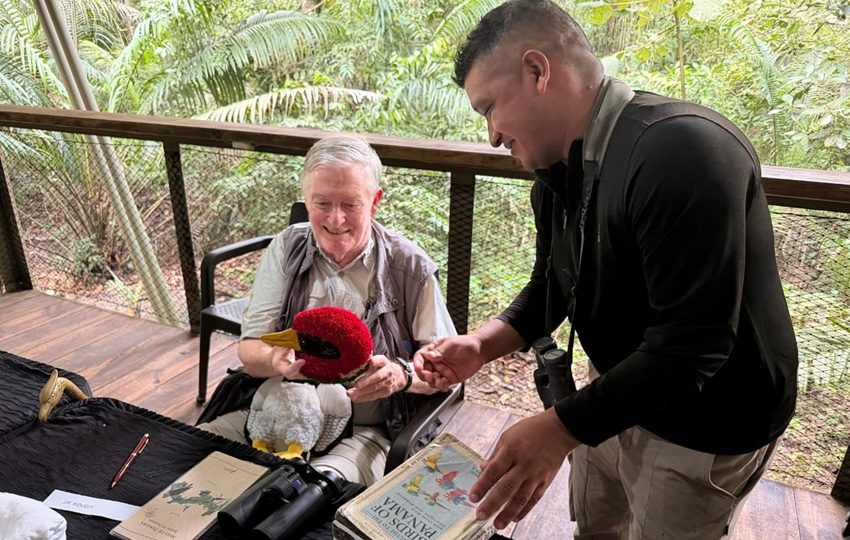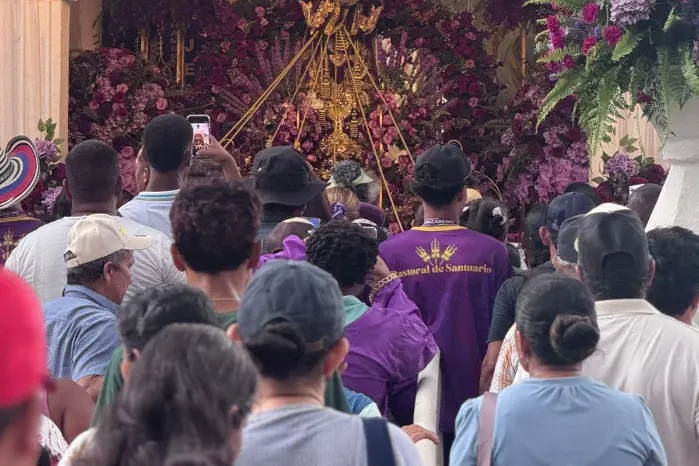Health care for the Panama retirement dream

By Dahlia Ferrer
MOVING to a tropical paradise is more than pulling up stakes, finding a new home and getting to know the neighbors.
While researching and planning a new lifestyle, there are always a few “what ifs” to be considered, with health care topping the list.
Fortunately, Panama is well endowed with a range of first class modern hospitals with their attached medical centers housing highly qualified doctors many earning their specialist training in the US, Canada, and Europe.
So getting adequate health care is not the problem, but ensuring the ability to pay for it when faced with severe challenges is of prime concern.
People planning to move are advised to apply at least two months before coming. When you fly into Panama it should be your aim to have your health insurance set.
It’s not just about health protection, but also financial protection. One serious health problem can knock out your nest egg within a week.
To help new arrivals or those considering Panama as a new home or place for establishing a business, Newsroom has asked me to prepare a guide to help readers how best to have an umbrella to cover any eventuality.

Cost is likely one of the first questions to crop up. Americans moving here will be pleasantly surprised to find a visit to a specialist comes at $50 -$60 with discounts for ” jubilados” (retirees), and hospital care costs are dramatically much lower and first class dental care is a fraction of what they have been used to. For those coming from Canada or Europe where there are state run health services, they will discover reasonably priced plans that will safeguard them from any untoward or catastrophic health crisis.
Many health insurance companies are active in Panama, like BlueCross/Blue Shield, Mapfre, Assa, Aeguradora Ancón, Bupa, Pan-American Life, Seguros Vivir, Worldwide Medical, Sagicore. Some offer only local coverage and others international. but these days most folks prefer to utilize the services of a knowledgeable broker, who can navigate through the competing plans and come up with what best suits the needs of the client and ideally communicate the options in layman’s terms in English.
Some offer only local coverage and others international. but these days most folks prefer to utilize the services of a knowledgeable broker, who can navigate through the competing plans and come up with what best suits the needs of the client and ideally communicate the options in layman’s terms in English.
 Finding a reliable, lawyer or doctor can be a difficult task in a location new to you, and the same goes for health insurance broker, where the relationship is likely to be long term and advice and support and intervention in time of need is important.
Finding a reliable, lawyer or doctor can be a difficult task in a location new to you, and the same goes for health insurance broker, where the relationship is likely to be long term and advice and support and intervention in time of need is important.
Endorsement based on personal experience is the best so while preparing this article I researched expats in Panama, to identify a reliable expert to get some pointers. Many roads led to Gonzalo De la Guardia whose grandfather was the first to bring health insurance to Panama and who has five siblings and a daughter in the insurance business. With a four generation track record, the La Guardia family business, ADG Seguros (Arias y De la Guardia) seemed a good place to pose questions. Here’s what I discovered;
Q: What does an expat need to qualify for local coverage?
A: Expats need to reside or “have plans” to reside in Panama or somewhere else in Latin America for at least six months of the policy or calendar year. The crucial text for some insurance companies is that the applicant won’t be a resident of their home originating country during the policy year (meaning, the applicant will not reside six months or more of the policy year in the U.S., or another country).
Companies do not require proof at the moment of application. Applicants “declare” intended place of residency on the application.
Q: If I have PRIVATE health coverage in my home country, am I covered in Panama?
A: Usually not. In my experience I’ve seen maybe 10% of the policies issued in the U.S. with coverage outside of the country, so most expats have to look carefully at their current policies to see if they are covered outside of the U.S.
Q: How does it work when I have a local Panamanian policy and an insurance policy from another country?
A: Usually the oldest policy pays first. if the oldest policy doesn’t cover everything then the second] policy pays the difference. A local Panamanian policy will only cover you in Panama. The other insurance will be the only one to pay for anything outside of Panama.
Q: If I have PUBLIC health coverage in my home country, am I covered in Panama?
A: No. It will not cover you in another country. However, if you have Medicare or public healthcare in say Canada, you might want to keep that up-to-date so you can have the option of having local coverage in Panama. This way if you find yourself with a medical problem (other than one requiring emergency attention) you can return to your home country and use your public healthcare.
Q: Are there pre-existing condition exclusions?
A: Yes! When you apply for coverage the insurance company will inquire about your medical history. They will study pre-existing conditions, but there is flexibility in what they offer. Some pre-existing conditions are not important but others are. For example, the insurance company wants to know of recent cancers, or whether you have blood pressure problems, etc. and they will underwrite that condition.
If in their eyes it is a very serious condition, they still might not insure you, but if you have cardiovascular problems, for example, they can offer a policy where they do not cover cardiovascular diseases.
They can offer you coverage but exclude one condition permanently, or even temporarily.If they exclude it temporarily they can offer to revisit the condition in a certain time period and might, at that point, offer to cover the condition. Alternatively, they can cover the pre-existing condition, but increase the premium – there are always choices and alternatives.
Q: How much does insurance increase as you get older?
A: It goes up approximately 5% every band of 5 years. the 24-29 age range, 30-34, etc. When you get to 60 it increases to roughly 10% per year.
Q: What advice would you give expats?
A: In Panama, you can get very good international policies that will cover “catastrophic” events. The idea is to have a policy with a high limit, at least two million dollars coverage, renewable every year. That will take care of whatever can happen to you. Ideally, the policy will cover you in your place of residence, here in Panama. But I always suggest to my customers to have a backup, that will cover them in their place of origin.
If you are a U.S. citizen, and want the option of seeing a doctor in the U.S. or should you find yourself in a serious situation that requires hospitalization and treatment at home, where you have a family, you want to be covered to go home. You have that backup when you buy international policies that will cover you anywhere in the world.
A good health insurance policy is like having a two million dollar checkbook. You want to have it in the safe, but if you ever need it, you open that safe and you have a checkbook to take care of all of your medical bills.
Panama City Hospitals:
Hospital Sante Fe, Calidonia
Hospital Nacional, Bella Vista
Salud Punta Pacífica,Punta Pacifica
Paitilla Medical Center
San Fernando Hospital Clinic (Pueblo Nuevo and Coronado – an expat community)
Newsroom Panama’sdaily source of news for English speaking residents is read in the US, Canada, the UK and 30 other countries. – for advertising opportunities contact adnewsroompanama@gmail.com





